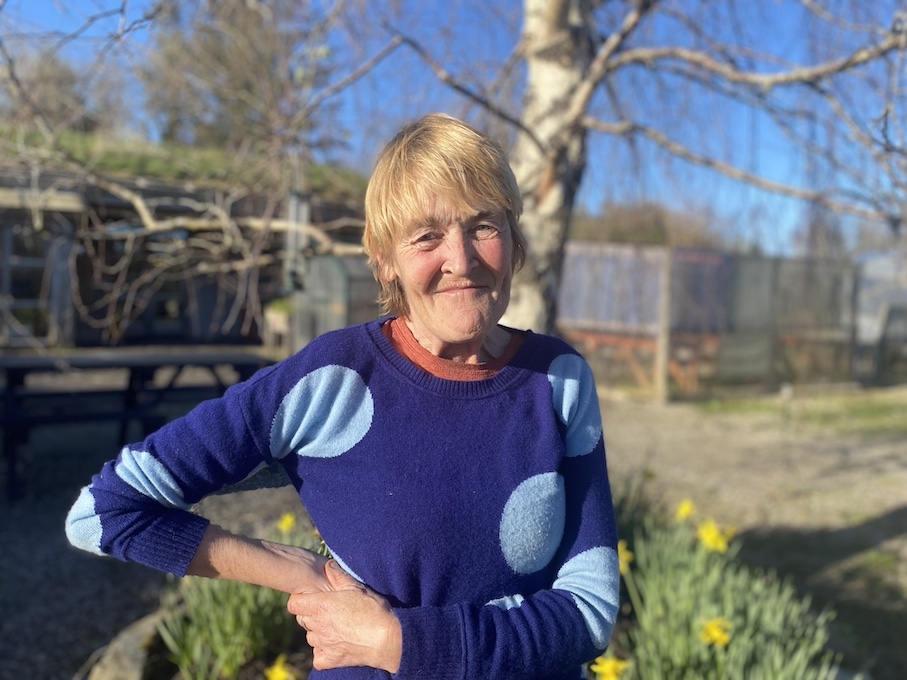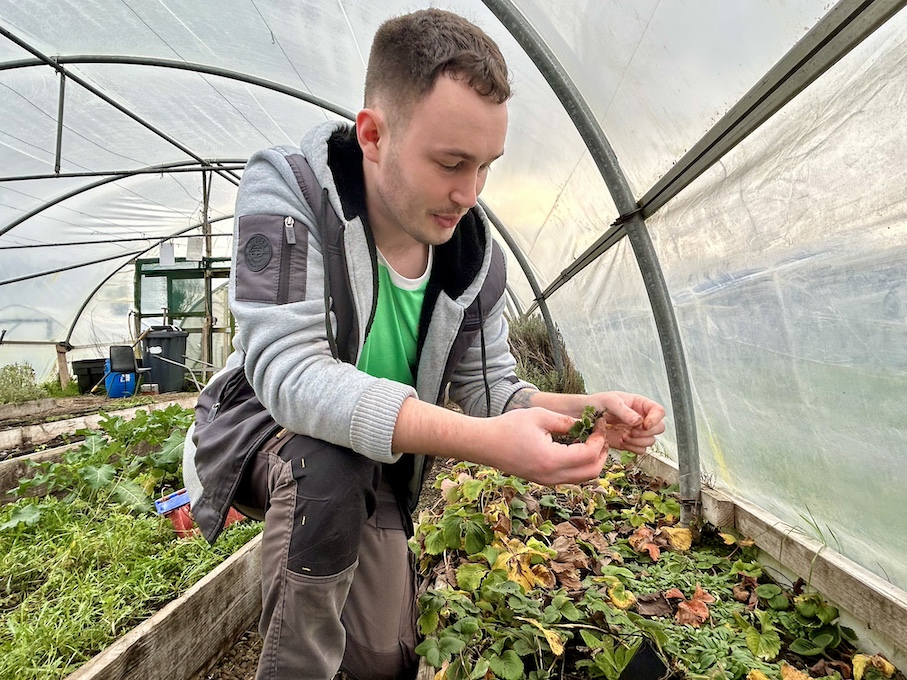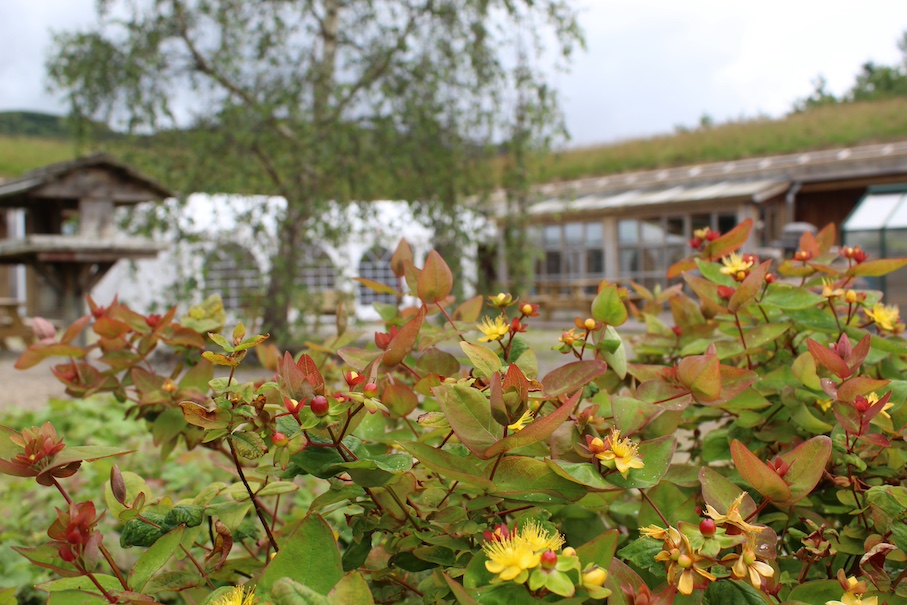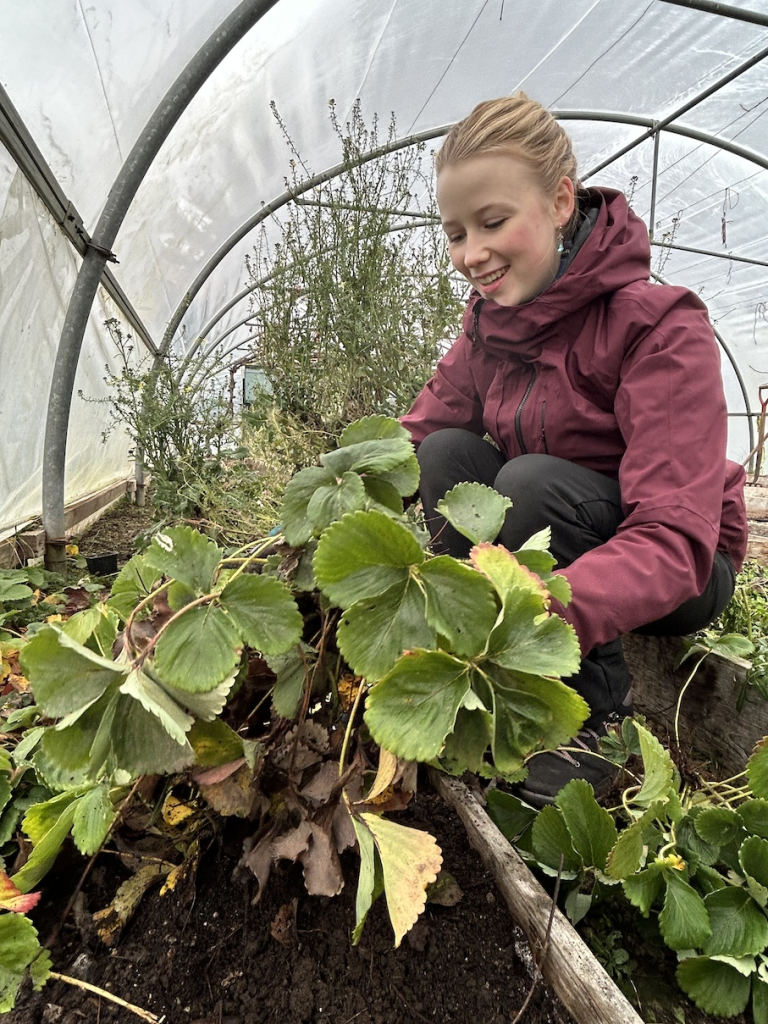Tags
‘Organic farming levels lag behind European counterparts’.
Caroline Allen.

There is real concern that national levels of organic farming, while increasing within the last few years, still lag behind our European counterparts.
That is according to Ingrid Foley, one of the coordinators at the Organic Centre, Leitrim, who teaches on the pioneering full-time Level 5 course.
While Ireland has increased its agricultural land for organics to 5%, it is still second from last in the table and a long way from the top European colleagues where 25% of Austria’s agricultural land is used for organic farming, and 23.4% of Estonia’s.
“Our lack of future ambition on targets at only 10% for 2030, relative to others in the [Euroepan] union, shows that while some work has been done, far more needs to be, including holding a true vision to be a leader in organic agriculture,” Foley said.
Aaron McGowan, the centre’s head gardener who also farms his parents’ land in Rossinver, said that the Young Farmers’ Scheme has helped get new farmers into farming as well as the Organic Farming Scheme.
However, he does not see the Organic Farming Scheme as supporting horticulture enough as participants tend, he said, to be smaller farmers.

McGowan expressed concern at what he sees as a crisis nationally when it comes to fruit and vegetable production.
“€400 million worth of vegetables were imported into Ireland in 2023. Irish vegetable growers have fallen off a cliff from 400 growers in 1998 to an estimated 60 now,” he said.
“The situation needs urgent attention to increase our national food security. This is an issue that’s going to become more prevalent with climate change and needs political will to prioritise it.
“Problems in international supply due to adverse weather exposed this weakness, even down to potato seeds more recently,” he contended.
In the 30 years since Leitrim’s Organic Centre has opened, it has seen a definite change in perception, according to Dervilla Keegan, communications and policy officer at the centre which is currently taking applications for its MSLETB course in organic horticulture.

“Organic horticulture which is what we focus on, is not seen as a fringe issue anymore, which is what it may have been seen as in 1995,” Dervilla said.
“Attitudes have moved on whether that’s through an increased awareness of the risks from pesticide use or a greater overall environmental awareness or appreciation of the quality and taste of organic fruit and vegetables.
“There is an incredible rise in availability of organic fruit and vegetables in the shops, reflecting a public interest and a market there,” she added.
The centre has seen increased numbers of people travelling to its courses and open days over the years.
“The centre was launched with six weekend courses in 1997, whereas now we have over 33 courses on our calendar for the new year alongside a week-long series of free workshops for Biodiversity Week in May and Heritage Week in August,” Dervilla continued.
“We host up to five free open days during the year and can have up to 500/600 people attend our biggest which tends to be Potato Day in March and Apple Day in September.
“We have speakers and demonstrations in them about growing and working with nature, joined by many household names including Klaus Laitenberger and the Loy Association of Ireland.”

Staff at the centre have admitted that Covid-19 saw a huge resurgence in people buying seeds and getting out there learning to grow in their own back gardens.
Ingrid Foley believes the popularity of incentives like the Organic Farming Scheme illustrate the sea change in organics, adding that these schemes are helping get people into business
Farmers are often adding on different types of income streams to keep sustainable, Foley outlined.

The numbers and passion of growers attending the Organic Growers’ of Ireland annual conference which she attended in November 2024 are also testament to the passion for young farmers for the area.
https://www.agriland.ie/farming-news/organic-farming-levels-lag-behind-european-counterparts/Published Date: January 19, 2025






